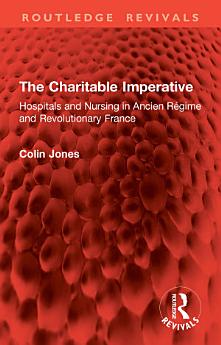The Charitable Imperative: Hospitals and Nursing in Ancien Régime and Revolutionary France
About this ebook
The principle of charity which underpinned this system of relief placed moral and social obligations on all who dealt with the poor: a kind of charitable imperative affected the thinking and behaviour of the administrators who managed the institutions, the nursing sisters who gave their lives, and the donors who gave up their possessions to meet the needs of the poor. However, the poor were also expected to pay their part, with the result that the Ancien Régime charity subsumed compulsion and repression as well as compassion. In spite of efforts to introduce a state-sponsored welfare system during the French Revolution, the charitable imperative was a legacy of the Ancien Régime to much of the nineteenth century.
The breadth of institutions covered, and the length of the historical period under review, will ensure the appeal of this book to a wide variety of historians. In particular, the chapters on nursing sisters will be of great interest to social historians as well as those working in the history of medicine.






